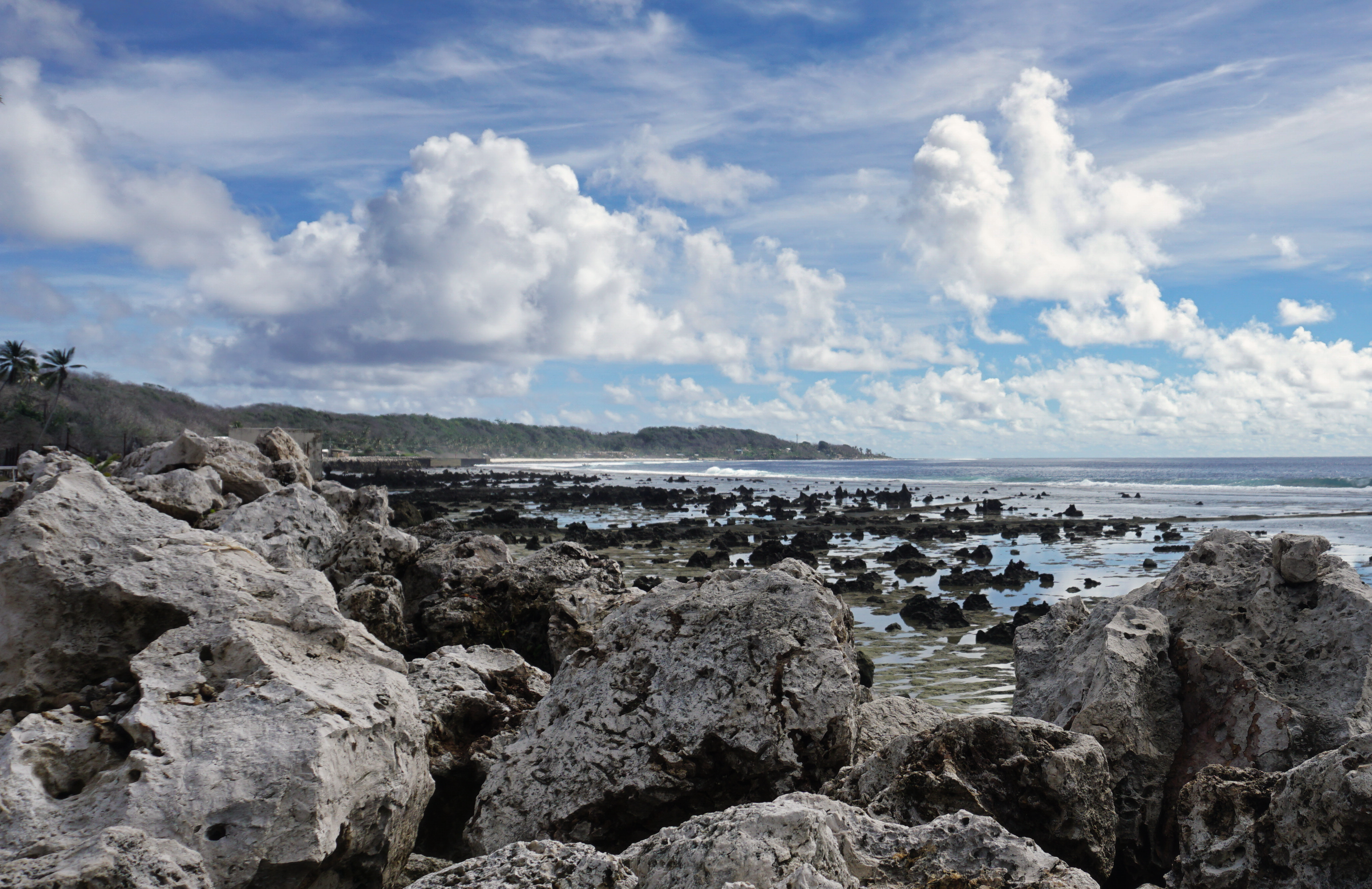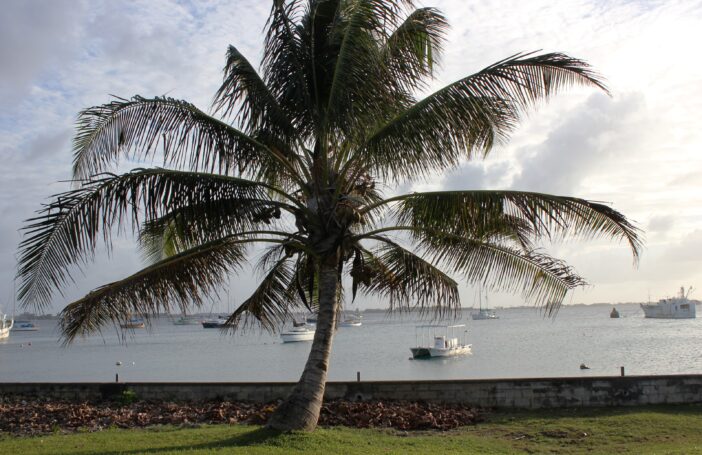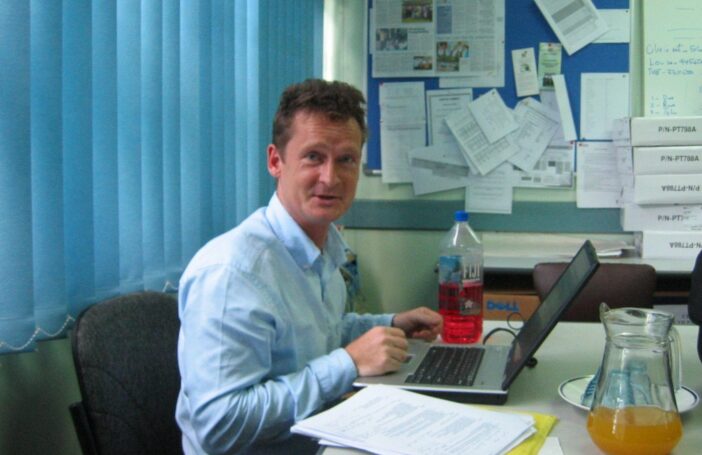The Pacific island nation of Nauru serves as the canvas for an approach to sustainable development programming that bucks tradition. Working with a population of over 12,000 people, and a single island 21 square kilometres in size, the United Nations Development Programme’s (UNDP) Pacific Office is taking a whole-of-island approach to its work in Nauru.
At the heart of this lies a commitment to supporting democratic values; work that continues to result in substantive results at the intersection of law and justice, public sector reform, and the electoral process.
Our support to Nauru in this critical area takes various forms.
We collaborate with the Nauru Electoral Commission and Parliament to enhance the integrity and effectiveness of elections, ensuring every voice is heard. For example, at the 2022 General Election this support resulted in a young Nauruan with intellectual and psychosocial disabilities exercising his right to vote for the very first time.
There is also ongoing work to support public sector reform initiatives encouraging transparency, accountability, and citizen participation. This includes a partnership with the Women Empowerment Nauru Association (WENA) to support increased engagement by women in politics and public life, with the hope of adding to the tally of two women who currently sit in the 19-member Nauru Parliament.
Finally, we help link the legislature with the country’s judiciary, with the Nauru Justice Initiative working to strengthen the rule of law, enhance access to justice, promote democratic values, advance gender equality, and further civic education on justice-related matters.
This last initiative, it must be noted, also works with the Department of Justice and Border Control, the Nauru Law Society, Nauru Police Force, Correctional Services, WENA, lawyers, pleaders, and civil society — exemplifying a whole-of-island approach to development programming.
A recent policy brief from UNDP looked at area-based programming, which in the case of Nauru involves the nation’s entire population. It was about how best to deliver development support in a way that is fit for purpose. This approach enables inclusive and participatory programming that can be highly responsive to local needs, at different stages of national development.
This is an approach to programming that recognises the interconnected nature of the development challenges the people of Nauru currently face. It brings stakeholders from various sectors together – be they from government, civil society organisations, or the local community – to identify the unique needs and opportunities that exist within the country.
While the emphasis above is on inclusive and participatory governance, a whole-of-island approach could extend far beyond the realm of governance. Imagine applying this collaborative approach to tackle pressing challenges such as climate change and its associated risks, advance clean energy endeavours, or foster the development of Nauru’s blue economy. It is an approach that could also support the development of Nauru’s youth – with 39% of the population currently under the age of 15 – helping to build the next generation of leaders.
UNDP’s partnership goes beyond the Government of Nauru, too, with support being provided by the Governments of Australia and New Zealand. For the whole-of-island approach to work, two key conditions must be satisfied: donor recognition of the interconnectedness and complexity of sustainable development solutions, and ownership of the change process by communities and national partners.
While in Nauru earlier this month, where I presented my credentials to Minister for Foreign Affairs and Trade, Hon. Lionel Aingimea, I discussed with the minister UNDP’s longstanding development partnership with the Government of Nauru. We also discussed the concept of climate-smart agriculture, digitalisation, inclusive governance, and the country’s Higher Ground Initiative.
The continuation of a whole-of-island approach to development in Nauru can help the country realise its national sustainable development strategy – its roadmap towards transformative change, towards a future where individual, community, business, and government partnerships contribute to all Nauruans’ enjoying a sustainable quality of life.
By fostering collaboration and addressing critical issues like climate change and resource management through this approach, Nauru will not only strengthen its own resilience but actively contribute to regional stability and security – aligning with the spirit of the Boe Declaration that was signed in Nauru in 2018.
Nauru holds immense potential for a bright future. By empowering its people and working together, we can unlock this potential and support Nauru’s journey towards resilience, inclusivity, and prosperity.
A longer version of this blog was originally published on the UNDP Pacific website.





An informative article on continuous progress and reforms in the tiny island republic.
Having worked on the island as a contract officer, we were able to reform the education system to cater for their older cohort population who never attended school during the phosphate boom.
The Republic needs to build and develop its human resource, through the basic education system on the island. Post secondary education should be completed outside of the island.
The health sector needs to be continuously developed as awareness is now serious business in personal health and hygiene.
Nauru needs a smart, wise and healthy population to provide the continuous manpower needs in its public and private sector of employment. That is the only way they can sustain their daily living.
Reasons being the island has no land sufficient for expansion and agriculture.